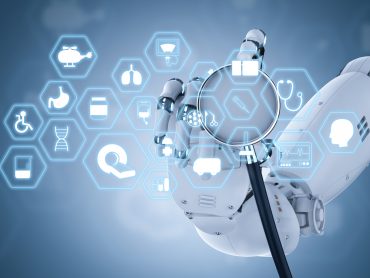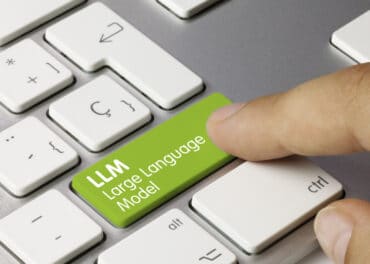
Here are a few predictions about how several industries that impact our everyday lives will be impacted by AI not only this year but beyond.
The buzz surrounding AI and its impact in 2020 and beyond shows no signs of slowing down. Driven by the emergence of virtual assistants, such as the Alexa, Siri, and Google Assistant ecosystems of devices, AI has now been incorporated into the everyday life of consumers. While it’s impossible to predict the future with certainty, technologies that incorporate AI and automation are maturing at an incredibly rapid rate across some industries.
Here are a few predictions about how several industries that impact our everyday lives – specifically healthcare, manufacturing, and mobility – will be impacted by AI not only this year but beyond.
See also: 4 Ways AI can Produce a Productive Workforce
Healthcare
The field of digital healthcare has become a hot topic, and it seems that this concept is poised to become common this year due in large part to AI enabling further innovations. Under the theme of prevention rather than treatment, the digital healthcare system has seen many advancements thus far, and more companies will join the race. In the United States, startups like 23andMe and Color are leading the market in genome analysis, while companies such as Genesis Healthcare and Genoplan stand out in Japan and Korea, respectively. These companies use genomic analysis to learn of potential diseases in advance and provide effective prevention methods.
The evolution of AI will also improve the quality of treatment. In 2020, many medical images taken using MRI, CT scans, and X-rays will be diagnosed using AI. Startups Enlitic, Zebra Medical Vision, and Aidoc (Israel) are ones to watch in this space as leaders.
In addition, surgery can be performed efficiently and effectively by robots, and the mortality rate due to surgical mistakes is greatly reduced. In terms of surgical robots, Intuitive Surgical, Preceyes, Synaptive Medical, etc. are emerging, and RiverField is prominent in Japan.
It is worth noting here that Google and Johnson & Johnson announced a joint venture for the development of next-generation surgical robotic system in 2015, which is another breakthrough in this space. Verb Surgical is building a digital surgery platform that combines robotics, advanced visualization, advanced instrumentation, data analytics, and connectivity.
Manufacturing
This year will be the breakout moment of AI in the manufacturing industry. With the growth of the elderly population in developed nations, the manufacturing space is already experiencing a shortage of manpower, and we will be seeing the implementation of AI and industrial robots in the manufacturing space to compensate for the decrease in labor supply.
In the U.S., top startup players such as Vicarious, Kindred, and Osaro are already standing out in their use of various artificial intelligence technologies for the manufacturing and industrial space. Kindred’s technology is being used to automate part of the distribution process for famous apparel brands such as GAP. Vicarious is also attracting a lot of attention for their type of artificial intelligence not being used by other companies, as well as investment from prominent entrepreneurs such as Mark Zuckerberg, Jeff Bezos, and Elon Musk.
Following in the footsteps of the U.S., we are also seeing similar technology developments in the AI space in Japan. Public companies such as Omron, FANUC, and Yaskawa Electric have already been implementing AI for their industrial robots. We have also seen top Japanese startups like MUJIN and Preferred Network, making massive progress in AI implementation for industrial automation.
Mobility
The US and China will be the clear leaders in the development and implementations of AI for mobility solutions in 2020 and beyond. We expect Tesla to roll out autonomous driving capabilities in city streets for mass adoption, marking a major moment in the history of artificial intelligence. Uber is even pledging to start testing its Uber Air flying taxi service in 2020. There will be more trials and investments made in the self-driving car and electric air taxi markets in the years to come. The capabilities of AI also will start to be seen in other micro-mobility solutions this year, from electric scooters to bicycles.
We anticipate that there may be some of the first micro-mobility fleets that can be summoned autonomously to locations based on demand. Furthermore, we expect to see AI technologies such as image, video, and speech recognition integrated into various solutions across the micro-mobility spectrum.
AI’s use cases are endless, and these are only a few of the many to expect in the years to come.





























